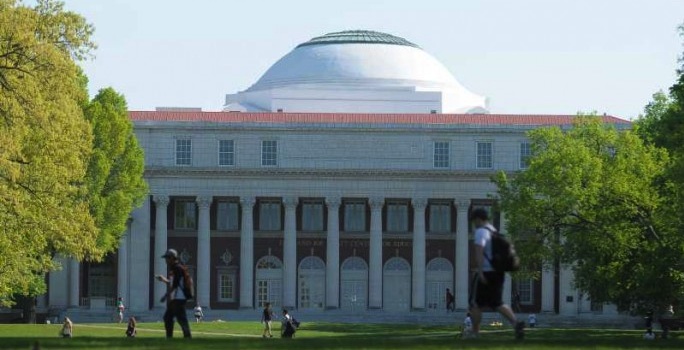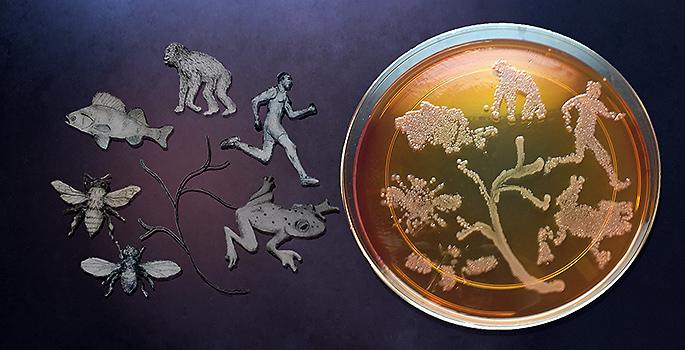Featured Research
-

Size matters in nanocrystals’ ability to release gases
More efficient catalytic converters on autos, improved batteries and more sensitive gas sensors are some of the potential benefits of a new system that can directly measure the manner in which nanocrystals adsorb and release hydrogen and other gases. Read MoreAug 6, 2013
-

Are protests in Brazil just the beginning?
Protests may spread from Brazil to other Latin American nations with similar conditions, says a report from Vanderbilt University’s Latin American Public Opinion Project (LAPOP). Read MoreAug 5, 2013
-

Vanderbilt scientists discover potential new way to treat anxiety
Chemically modified inhibitors of the COX-2 enzyme relieve anxiety behaviors in mice by activating natural “endocannabinoids” without gastrointestinal side effects, Vanderbilt University scientists will report next week. Read MoreAug 5, 2013
-

Peabody education experts available for back-to-school stories
As schools nationwide prepare for the new academic year, education experts from Vanderbilt University’s Peabody College of education and human development are available for back-to-school interviews on a variety of topics. Read MoreAug 1, 2013
-

Cognitive complaints, Alzheimer’s risk studied
A study of cognitive complaints in older adults showed that memory concerns from both the patient and an informant was most predictive of converting to Alzheimer’s disease or dementia within three years. Read MoreAug 1, 2013
-

Microbes can influence evolution of their hosts
A new study provides the first direct evidence that microbes can contribute to the origin of new species by reducing the viability of hybrids produced between males and females of different species. Read MoreJul 18, 2013
-

Wall Street Journal: Who gets more mosquito bites?
It is peak mosquito season, and while some lucky outdoor venturers seem unperturbed by the tiny insects, others appear to be relentlessly assaulted. Laurence Zwiebel, Cornelius Vanderbilt Professor of Biological Sciences, explains the most common culprits. Read MoreJul 17, 2013
-

LAPOP: Politically tolerant people use social media
A study by Vanderbilt University's Latin American Public Opinion Project shows that the use of social media for political purposes in the Americas can be an effective complement to conventional forms of political engagement. Read MoreJul 15, 2013
-

Early spatial reasoning predicts later creativity and innovation, especially in STEM fields
A new Peabody study found that early spatial ability – the skill required to mentally manipulate 2D and 3D objects – predicts the development of new knowledge, and especially innovation in science, technology, engineering and mathematics (STEM) domains, above and beyond more traditional measures of mathematical and verbal ability. Read MoreJul 15, 2013
-

Project seeks to create ‘bioartificial’ kidney
Nephrologist William Fissell IV, M.D., associate professor of Medicine and Biomedical Engineering, is intent on creating and mass-producing an implantable bioartificial kidney that can transform quality of life and prospects for survival for people with chronic kidney disease who would otherwise be forced onto dialysis. Read MoreJul 11, 2013
-

Training program meets ‘critical need’ for earlier autism identification
A three-year study that evaluated the effectiveness of a training program designed to enhance autism spectrum disorder identification and assessment within community pediatric settings was released this week in the journal Autism. Read MoreJul 11, 2013
-

Listen: How the Bible shapes American wars is the focus of Vanderbilt research
Scripture has played a pivotal role in shaping the United States’ justification for going to war from the nation's earliest beginnings, according to research from James P. Byrd, assistant professor of American religious history at Vanderbilt University Divinity School. Read MoreJul 9, 2013
-

Supreme Court wrap up: Constitutional expert explains why the Court ‘got the law right’
One of the nation’s top scholars on constitutional law, Vanderbilt law school professor Suzanna Sherry, the Herman O. Loewenstein Professor of Law, explains why she thinks the Supreme Court successfully followed the law. Read MoreJul 1, 2013
-

Science Magazine: How long can the U.S. stay on top?
In an era of stagnating government support for academic science, officials at many top research universities are looking to private philanthropy and increased efficiencies to maintain their elite status. Chancellor Nicholas S. Zeppos is quoted. Read MoreJun 28, 2013
-

End of Judicial Nominating Commission won’t delay Holder’s replacement
The end of the state Judicial Nominating Commission won't interfere with the selection of a replacement for Supreme Court Justice Janice Holder, who has announced her intention to retire. Brian Fitzpatrick of Vanderbilt Law School says that an alternative system is in place pending voter's approval of a permanent solution. Read MoreJun 27, 2013
-

Wall Street Journal: Rail safety and the value of life
W. Kip Viscusi, University Distinguished Professor of Law, Economics, and Management, is quoted on an age-old regulatory predicament—namely, whether or not spending to make one thing safe steers money away from addressing a more serious threat elsewhere. Read MoreJun 25, 2013
-

Validating maps of the brain’s resting state
A team of Vanderbilt researchers has provided important validation of maps of the brain at rest that may offer insights into changes in the brain that occur in neurological and psychiatric diseases. Read MoreJun 19, 2013
-

Not all reading disabilities are dyslexia
A common reading disorder goes undiagnosed until it becomes problematic, according to the results of five years of study performed by researchers at Peabody College of education and human development. Read MoreJun 14, 2013
-

New pre-K teaching method could close achievement gap
A new approach to teaching pre-kindergarten could take a bite out of the achievement gap and level the playing field for America’s growing population of English language learners, according to a recently published study by researchers at Vanderbilt’s Peabody College. Read MoreJun 13, 2013
-

Can a torturer and killer live an honorable life?
In the bygone era brought to life in a Vanderbilt history professor's new book, spending years in prison was considered excessively cruel and unusual while breaking every bone in a criminal's body while keeping him alive was reasonable punishment. Read MoreJun 12, 2013